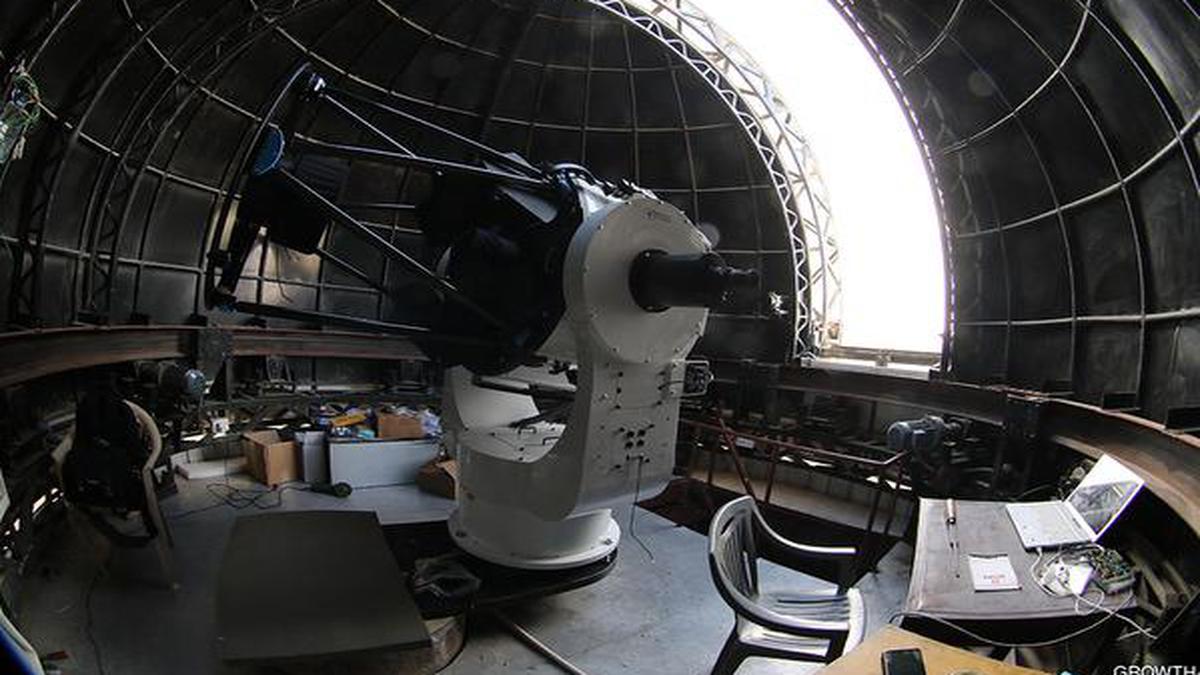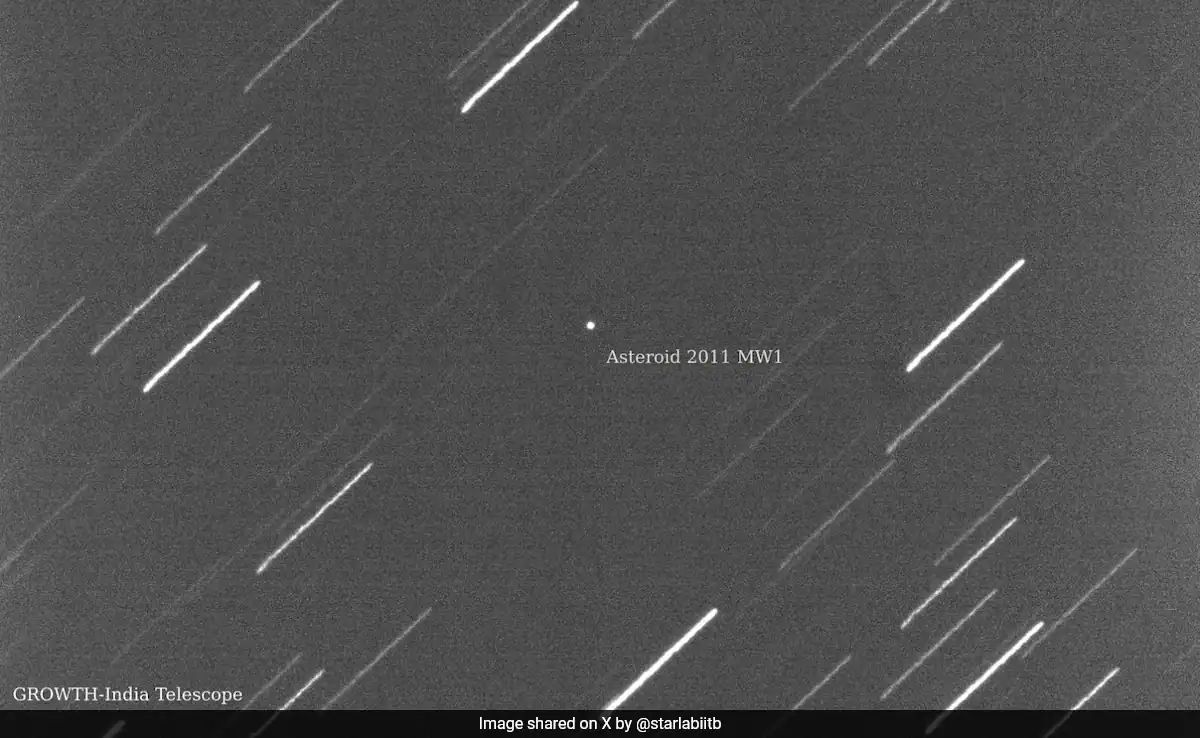The Indian Astronomical Observatory’s ‘GROWTH-India’ Telescope captured a 380-feet asteroid flying past Earth. The asteroid 2011 MW1 was captured during its closest approach to the Earth on July 25.
Varun Bhalerao, an astrophysicist working at the Space Technology and Astrophysics Research (STAR) lab at IIT Bombay shared this breathtaking image on X at 3:07 pm on July 26.
He further wrote “Last night, the GROWTH-India Telescope caught this 116m, building-sized asteroid on its closest approach to Earth! We tracked the rapid motion of the asteroid as it zipped across the sky at just 10x lunar distance. The rapid motion makes background stars look like streaks” in the caption of the post.
Last night, the GROWTH-India Telescope caught this 116m, building-sized asteroid on its closest approach to earth! We tracked the rapid motion of the asteroid as it zipped across the sky at just 10x lunar distance. The rapid motion makes background stars look like streaks. pic.twitter.com/gbbT8yxqsP
— Varun Bhalerao (@starlabiitb) July 26, 2024
Read: ISRO performs experimental flight test of air-breathing propulsion system
GROWTH-India telecope

The ‘GROWTH-India’ telescope is India’s first fully robotic telescope. It is developed by a collaboration between Indian Institute of Astrophysics, Bengaluru, and IIT Bombay.
The telescope has a 0.7 x 0.7 degrees field of view and a pixel scale of 0.7 arcseconds per pixel. It is stationed at Indian Astronomical Observatory site in Hanle, ladakh. At 4500 metres above the sea-level it is one of the highest observatories in the world and one of the best observing location in the country.
This telescope is a part of multilateral collaborative initiative known as the Global Relay of Observatories Watching Transients Happen (GROWTH) which aims to observe transient events in the universe. This programme is a five-year project, funded by the National Science Foundation (NSF), a US government agency.

